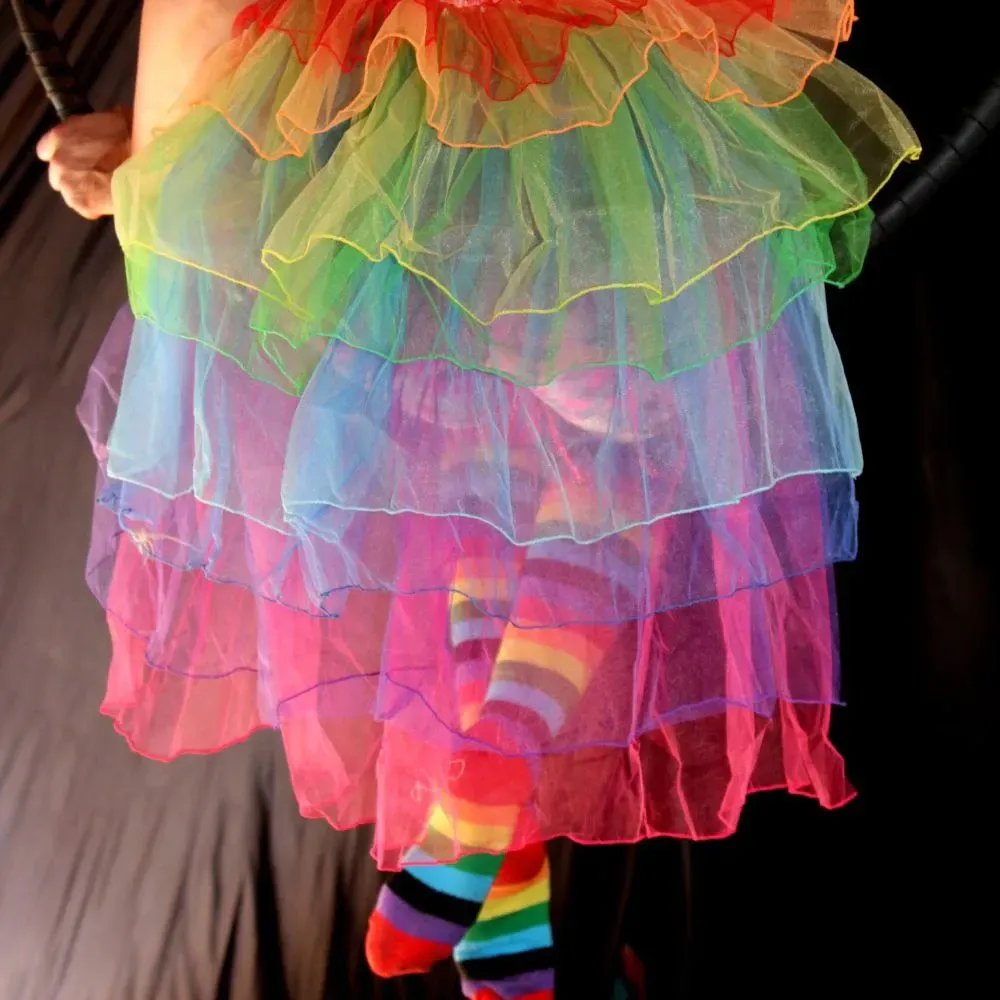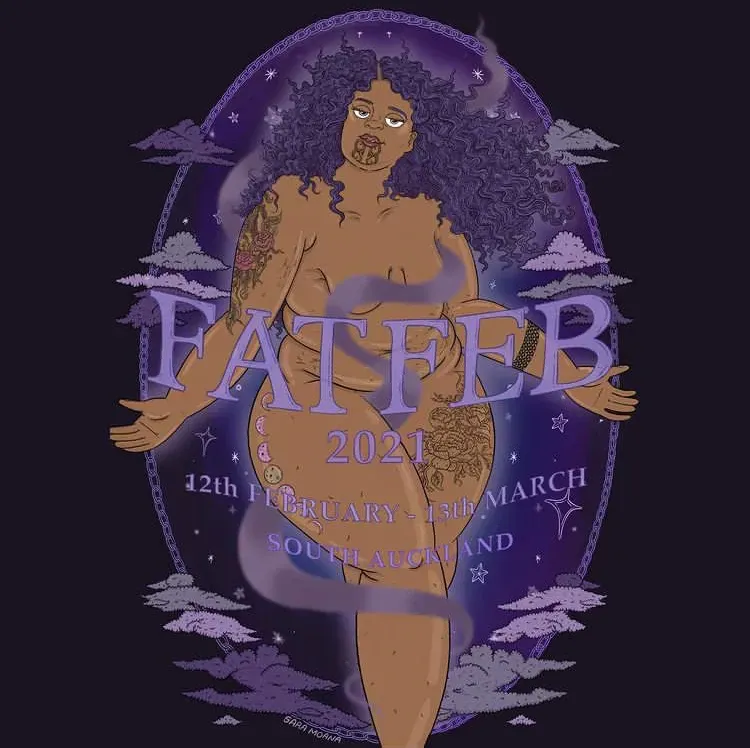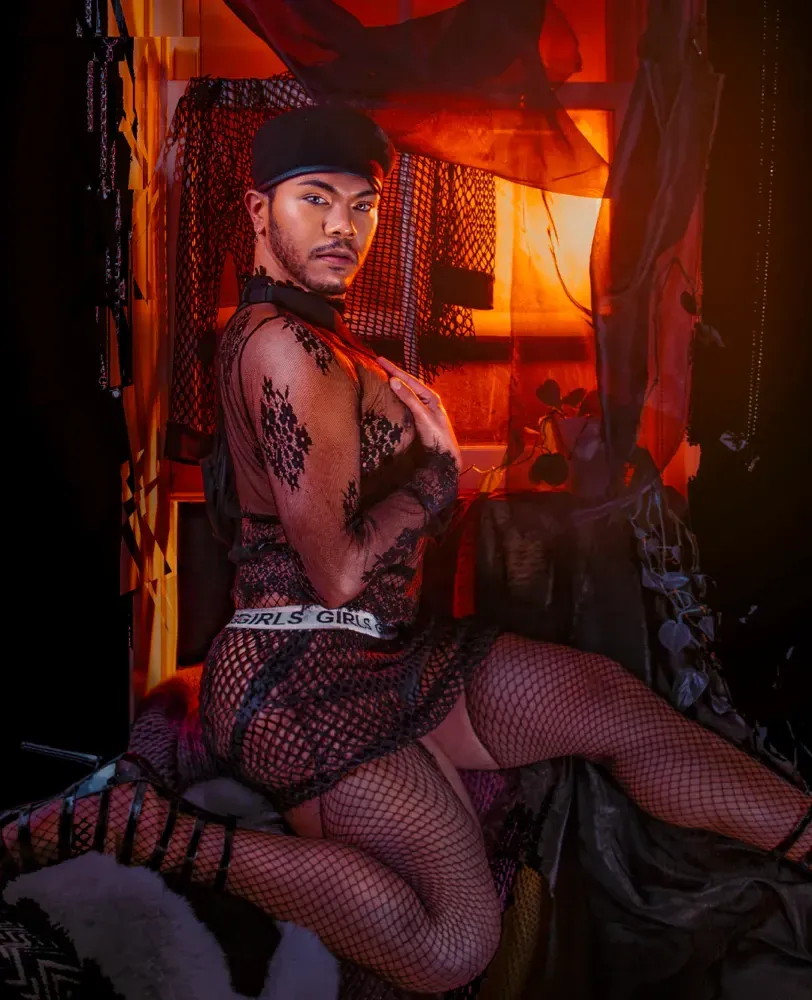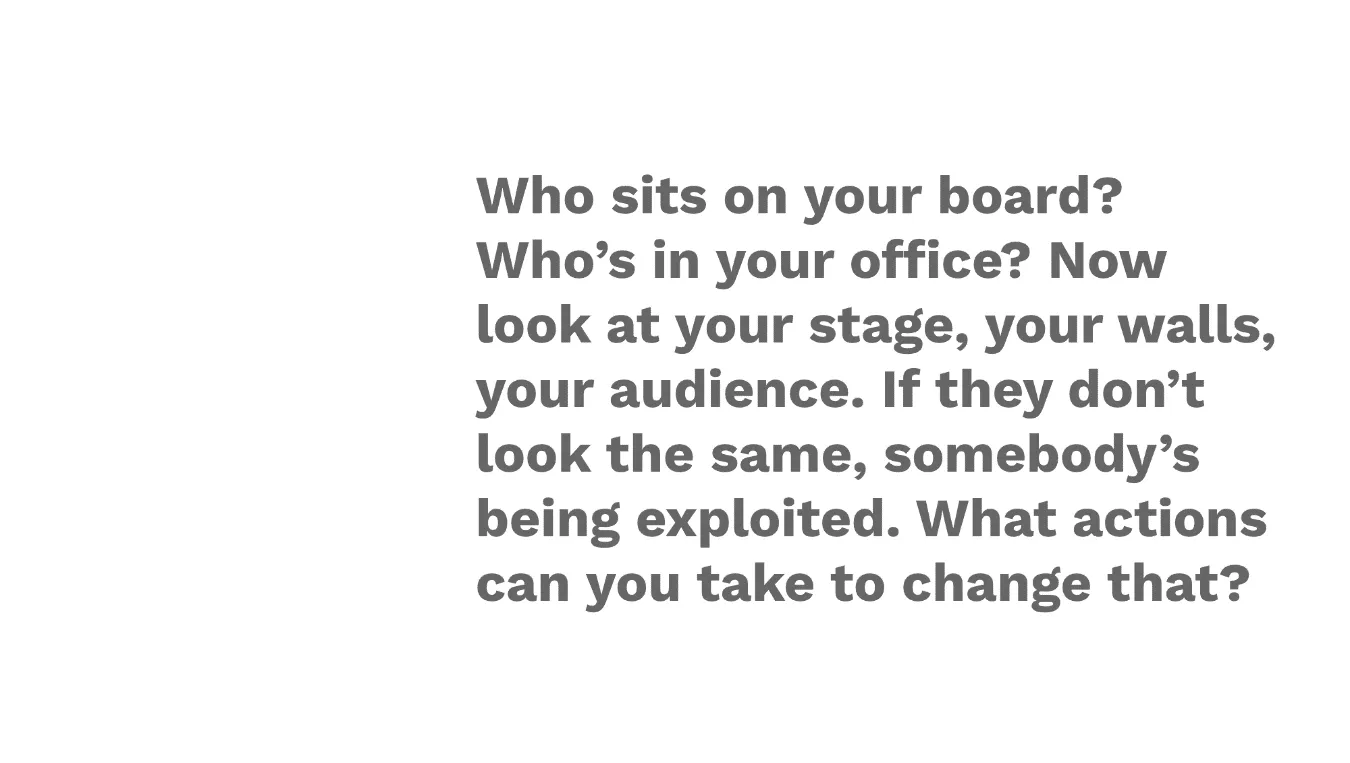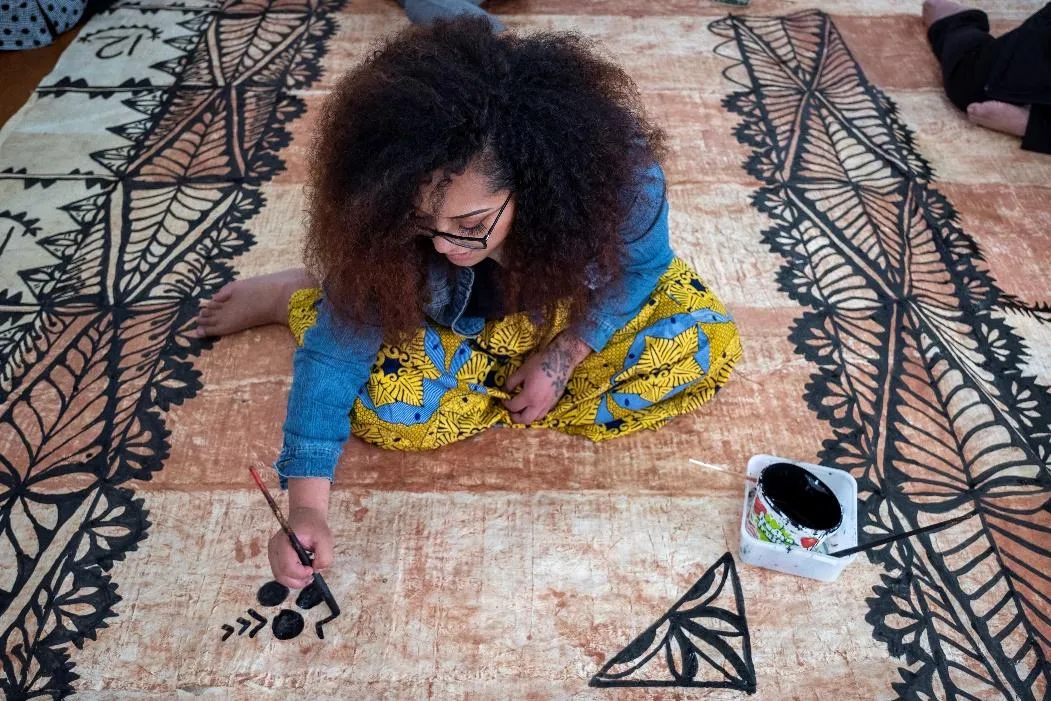Walking the Path to Wider Inclusion
Written by
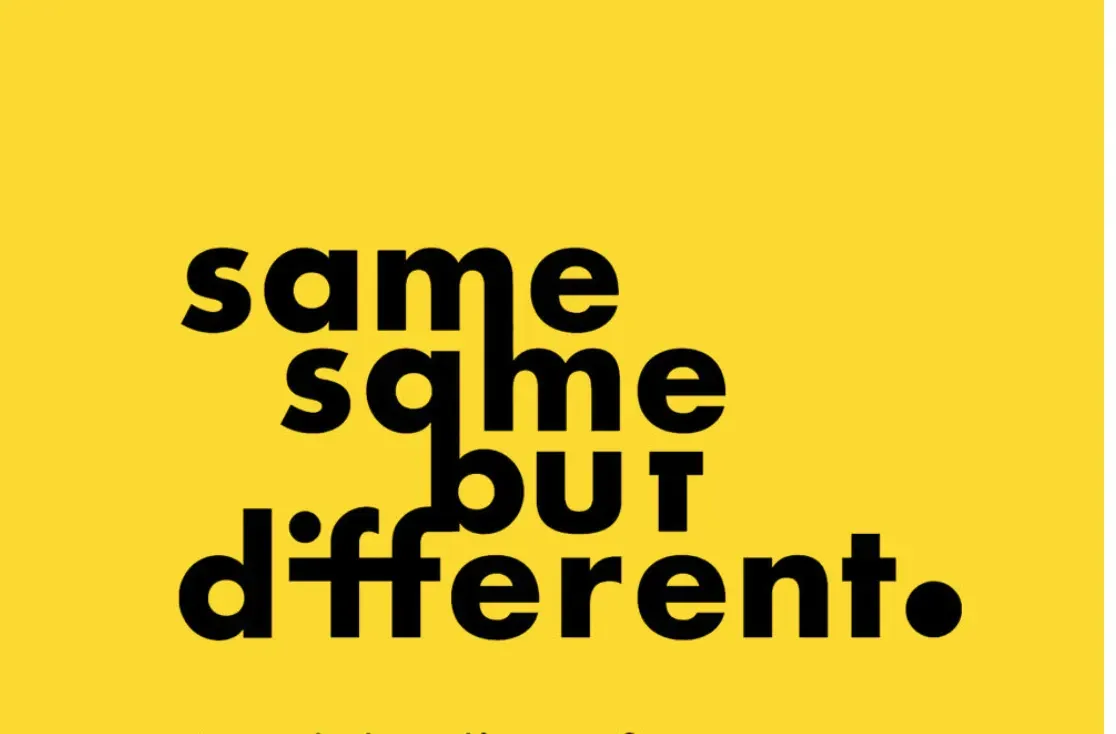
More fluid please!
February means celebrating our diverse LGBTQ+ and rainbow communities where Auckland Pride dominates the social calendars!
Even with the 72 hours spent at COVID alert level 3, there has been an overabundance of vogue balls, queer literary events, open-access arts, cultural, community happenings that are fluid and unconstrained. As Green MP and Rainbow Communities spokesperson Dr Elizabeth Kerekere said in her maiden speech earlier this month: “Takatāpui rights are a Treaty issue”. Great to see that since Sunday, over 135,000 people have signed the Green party petition to ban conversion therapy in Aotearoa.
The rainbow communities are signalling that we are no longer living in a world where it is acceptable to solely express sympathy and call yourself an ally. Allyship implies mutual goals, mutual benefits and mutual support. Asking communities that have and continue to be marginalised to support those in positions of dominance seems absurd.
We need to step into the space where we become co-conspirators more than allies, and claim space for reciprocity while smashing the binary. We need to be vigilant and ask what the alternatives are.
Basement Theatre was on fire with a solo performance art premiere of HEtheyShe. Part activation, part dance experience - performed and conceptualised by Non-binary BIPOC (Māori/Samoan) poet, performance artist and movement artist, Cypris Afakasi - the performance revealed and challenged the limitations of our collective understanding of gender. Programming Manager Nisha Madhan remarked on the role of artists in our society and the generosity they bring:
“I’m a strong believer that artists do an important and specific job. They process the world around them in real time and space through intention and action. They use ritual to weave spells that need witnesses, to activate its charm.
“At Basement, we love anything involving the undoing of the dominant colonial-patriarchal regime, taking up space with unapologetic bodies and clearing the air for give-no-f**ks voices. If there is one work this summer that embodies all of this, it has to be HETheyShe.”
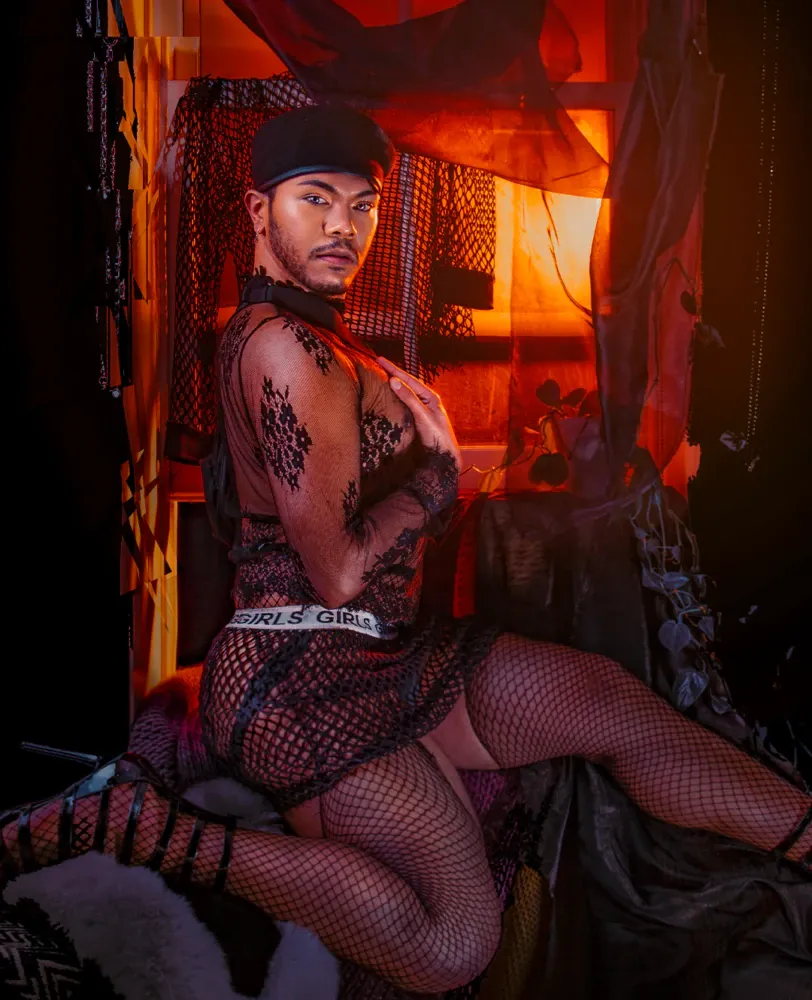
If you missed out on seeing it, this review by Jack Gray definitely conjures it up.
Same Same but Different, a queer literary festival that aims to amplify the stories of Aotearoa’s rainbow communities, took place in the Auckland's Ellen Melville Centre over the course of five days. All of the events this year were free and some were even live-streamed.
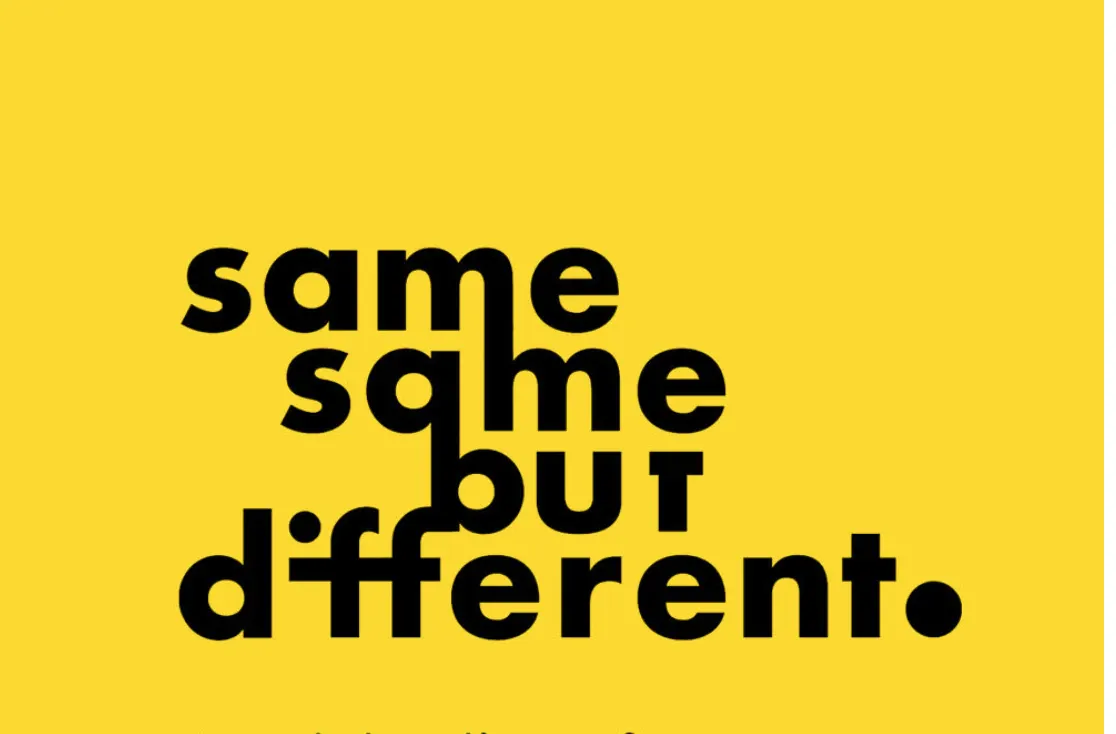
The panel ‘Queer Bodies’ featured the creators of the show Reclamation, Ria Hiroki and Elyssia Ra’nee Wilson-Heti, Dunedin-based psychologist and author of Perv and Why is the Penis Shaped Like That?, Jesse Bering, writer and disability activist Henrietta (Etta) Bollinger, and poet and publisher Jackson Nieuwland. Chaired by queer academic and fat studies scholar George Parker, it was a discussion that could have gone on forever. The conversation that took place was irreverent and celebratory while covering enormous breadth and depth of lived experience beyond the previously accepted norms.
The welcome drop to alert level 2 in Tāmaki Makaurau from today (Thursday 18 February) means that some Pride events have been given the green light, while others will, unfortunately, be postponed or cancelled. Here's a detailed list of what's on and what's not.
A big fat success
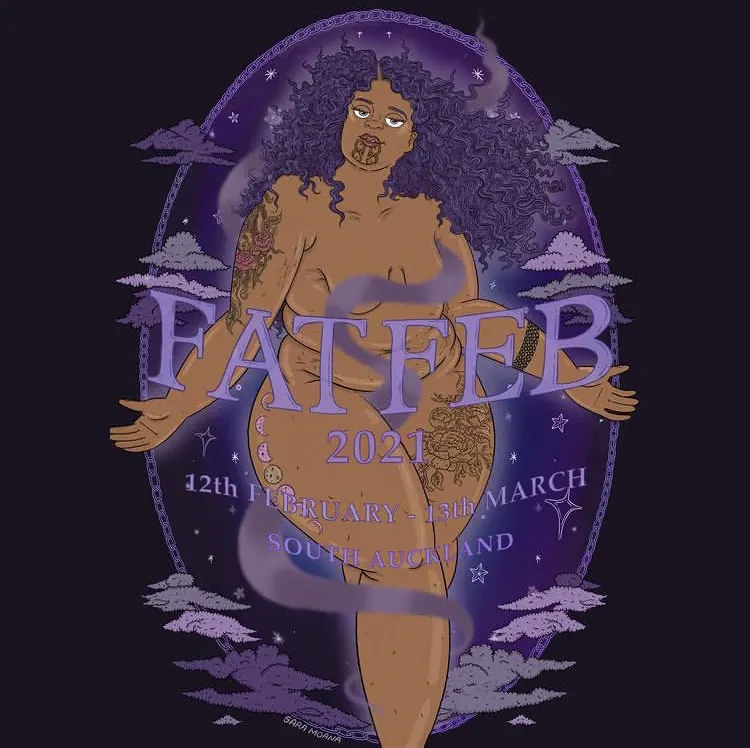
FATFEB poster designed by @saramoana
FATFEB, a grassroots arts festival dedicated to radical fat activism was launched at Vunilagi Vou with an exhibition titled Pussy Fat and featuring opening activation addressing issues relating to body sovereignty while making a deliberate change in the fashion industry and size equity. Dreamed up under the leadership of Creative Director, Amy Lautogo (Infamy Apparel) with support from Elyssia Wilson-Heti (FAFSWAG), this amazing kaupapa focussed on creating safe spaces for the community to celebrate and thrive by centralising art and visibility of fat bodies, to destigmatise the fat experience, and eliminate fatphobia.
The story behind this unique neighbourhood festival is highlighted in this Ensemble article. Due to COVID-19 restrictions that wiped out performances and gatherings at the start of the week, the remaining programming will be available online via fatfeb.co.nz.
Watch out for their new Fat Gal Pals podcast. First episode, “The F word” is already up on their website, where the gals discuss the word FAT and its weaponisation in their own lived experiences, how they overcame the negative connotations and turned it into one of their greatest assets.
Hitting the refresh button
A workshop led by Auckland City Council took place last Thursday where prominent figures in the arts and culture sector gathered to discuss the region's strategies, key challenges, priorities, recovery and new directions towards a sector-wide strategy refresh.
It is clear that our individual and collective wellbeing is connected to the wellbeing of the sector so here is hoping for a bolder, radical change to the current system that is failing artists and practitioners across all disciplines of Aotearoa.
Although we are no longer living in the post-pandemic due to the latest announcement of COVID-19 alert levels and further impact on the creative communities, We can build a new utopia - reimagining the post-COVID ngā toi arts and culture sector in Aotearoa by Rosabel Tan is a must read! It reveals the fragility of the sector’s future as well as opening up space for reflection about representation, transparency of funding and the shift towards sustainable practice. Here are the seven actions for a (post-pandemic) sector:
-
Examine the values we have built our sector on — are they guiding us towards the future we want?
-
Understand who we want art to serve (hint: it’s everybody) and act like it
-
Create and strengthen the pathways that actually unlock and sustain truly excellent work
-
Ensure these values are reflected in the ways we measure success
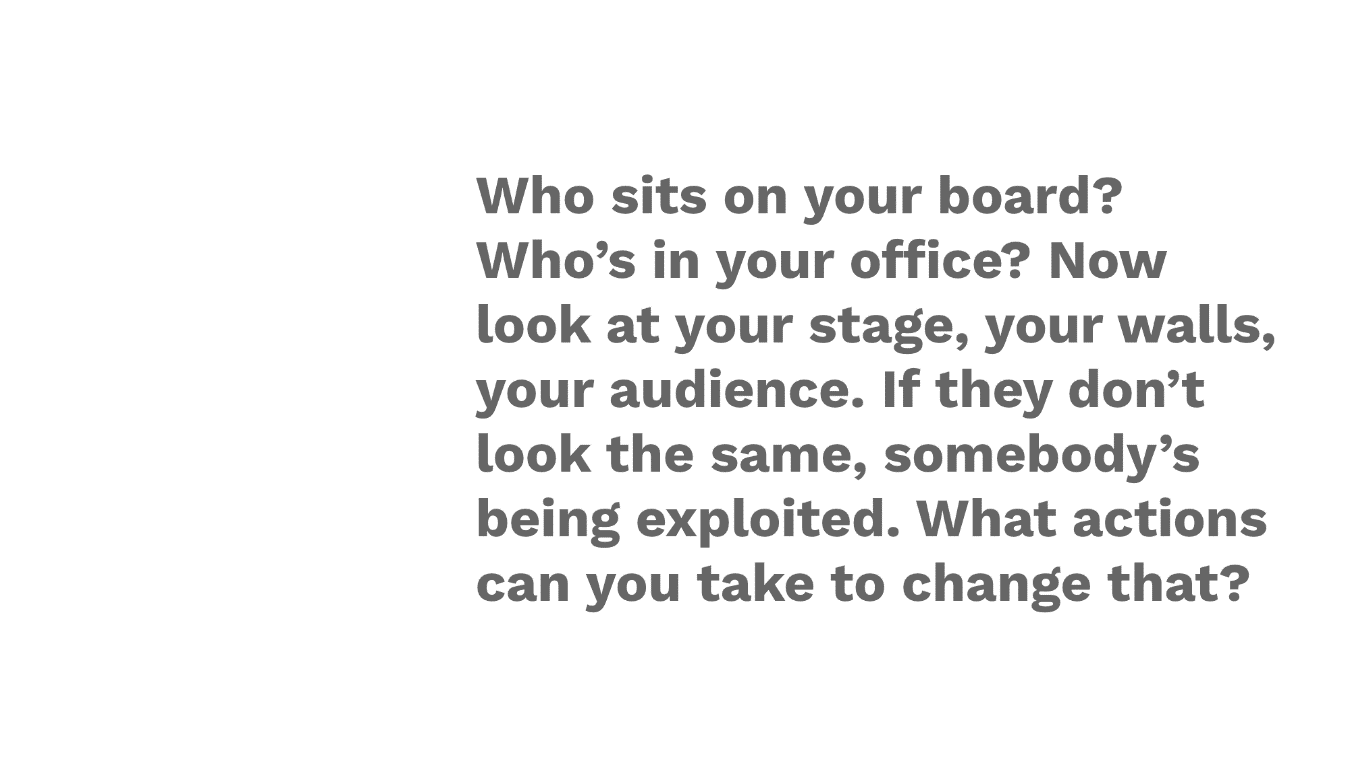
Text Quote from We can build a new utopia by Rosabel Tan. Image: Te Taumata Toi-a-Iwi.
Decision made
Last year, AUT University announced the proposed disestablishment of all ST PAUL St Gallery staff to enable it to be integrated into the school’s student and research-driven activities and curricula while being led by the School’s academic staff, cut cost and plan for COVID recovery. This week the final decision has been announced. Director Charlotte Huddleston and Curatorial assistant Kahurangiariki Smith will be leaving the gallery while ST PAUL St continues in its transformation and revisioning process with curator, Cameron Ah Loo-Matamua, and an internal academic advisory group.
Important spaces
Celebrating Makers: Ngatu a week-long fleeting exhibition hosted by Te Papa closed this Sunday. This important gallery activation and display of Tongan tapa cloth made here in Aotearoa New Zealand was a perfect example of how museums like Te Papa are valuable place-making spaces for communities to gather and learn the artform, ensuring the resilience and ongoing innovation of the next generation.
Hiapo practitioner Coraline Wickliffe commented on institutional responsibilities to Pacific makers and these “folds of generational artform that tell our stories” through purchasing their bark cloth and highlighting their practice.
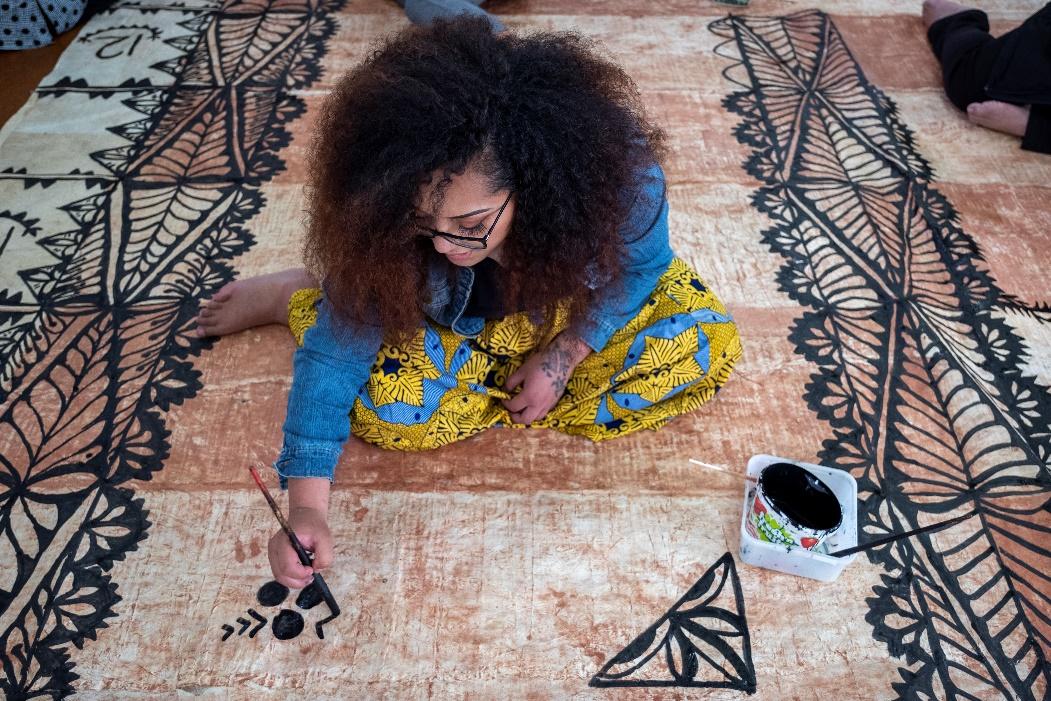
Ngatu painting by a member of Akomai Heritage, 2020. Photo by Vioula Said. Te Papa
We need to share more stories and more experiences that contain the diversity of our experiences and our way of being. In the latest Pantograph Punch essay, titled Time to Not Mop the Floor, Poet Laureate Selina Tusitala Marsh wrote “story has the power to take that which wants to kill you and give birth to life.”
The success and the future of the sector will continue to be impacted by COVID and COVID recovery. Read here about the latest impacts and the readiness for the sector. The path to wider inclusion will not happen in isolation but in the strength of the collective, though building communities that thrive. If we learn how to be more fluid and adaptable, we will have greater success in taking care.
